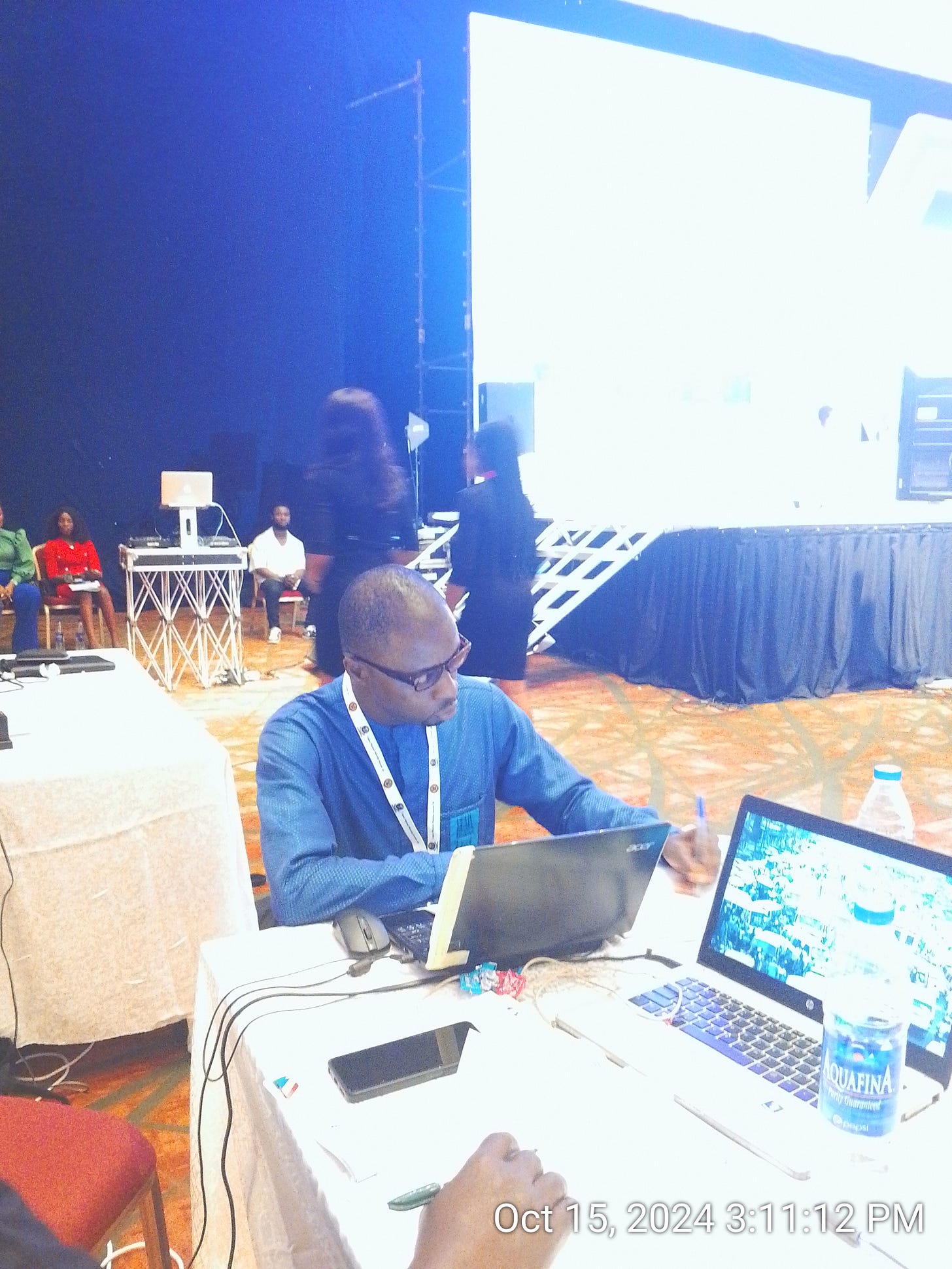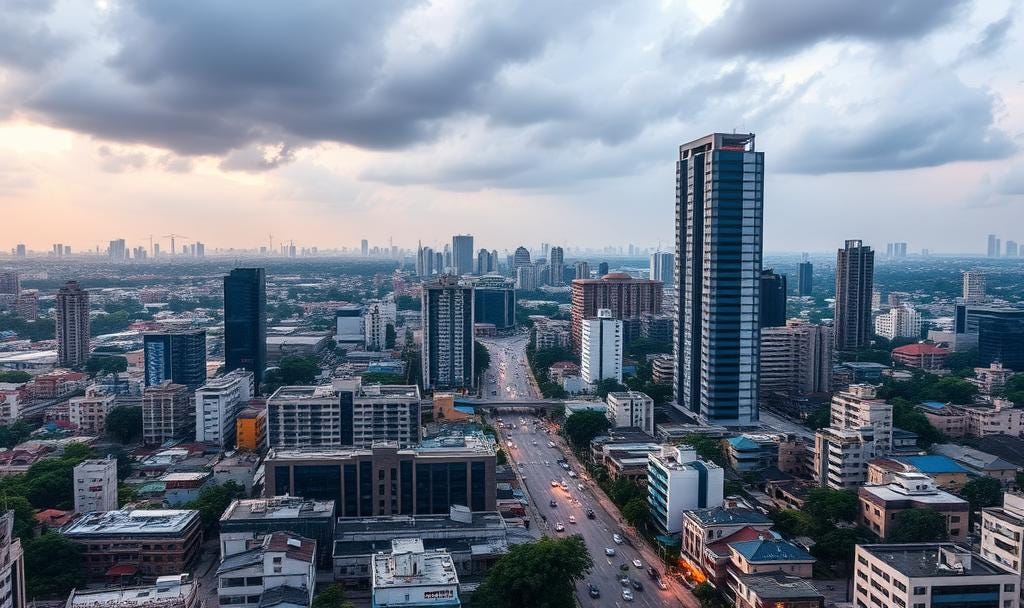He noted the passive voices of town planners and challenged town planners, often overlooked in Nigeria’s development discourse, to step into leadership roles, speak up, and ‘be present.
At different times in human history, speeches turn the tide, ignite a positive change, and increase individual and institutional reflections. Ultimately, these speeches help to address systemic issues and challenges. The keynote address by Mr. Raji Fashola, a former governor of Lagos State, at the Lagos Physical Planning Summit 2024 titled “Issues and Prospects of Lagos as Africa’s Model Mega City” could be placed in the class of such speech. Fashola, who has been part of the Lagos State governance system, clearly understands the dynamics of urban planning in the State. He is a former minister of Nigeria under whose ministry the urban planning regulatory body (TOPREC) domiciles at the federal level, which allows him to understand the inner workings of the urban planning profession across Nigeria, particularly in Lagos State. The keynote address could be aptly termed the “light of Fashola.”.
Image 1: Plenary Session at the Summit
Lagos is regarded as Nigeria's commercial hub, the commercial hub in Sub-Sahara Africa, and also one of the fastest-growing economies in Africa; it would have placed fifth based on its GDP if it were a country with a growing population estimated at over 20 million people. Invariably, Lagos is a megacity by its population status. However, the Lagos megacity has divergent development challenges, socio-economic complexities, infrastructural burdens, and environmental demands. As noted by Mr. Raji Fashola, Lagos's megacity status places immense pressure on its urban framework. The evidence of this pressure includes incessant urban traffic congestion, sprawling informal settlements development and uncoordinated fringe development, particularly in the Epe, Ikorodu, and Badagry axes of the state, inadequate waste management even with the innovative introduction of private sector participation, and overstretched public infrastructure and utilities. These highlighted urban development issues in Lagos are not just mere urban inconveniences; they are existential threats to Lagos's function within Nigeria and the West African sub-region. However, Mr. Fashola sees these challenges as opportunities that could be addressed through proactive, data-driven urban planning that anticipates growth rather than being reactive.
Image 2: Taking Note at the Rapporteur Desk
Raji Fashola’s keynote delivery at the Lagos Physical Planning Summit 2024 was both a critique and a rallying cry for the urban planning profession in Lagos State and Nigeria. He noted the passive voices of town planners and challenged town planners, often overlooked in Nigeria’s development discourse, to step into leadership roles, speak up, and ‘be present.’ As it is frequently reiterated in local parlance, “If you are not at the table, you will be on the table.” In this regard, town planners should be at the forefront of sustainable development in Lagos to create a livable Lagos for all. The town planner’s imperativeness to drive the development agenda was emphasized; this is underpinned by the unique ability of the profession to influence land use development, which is connected to other facets of urban life, including investment. This is notable because every investment decision is connected to land. In addition to the passive town planners' voice, other stumbling blocks hinder the profession's progress. These include the fragmentation of town planning agencies, with multiple agencies having overlapping mandates, which leads to inefficiency and bureaucratic inactivity. Fashola’s call for a centralized planning authority could be the key to aligning these agencies’ functions and eliminating duplication.
Image 3: Graphic Depiction of Lagos Urban Skyline
Town planners in Lagos State and Nigeria need to develop robust and sustainable solutions to urban development issues, for though Lagos has some degree of a multi-modal transport system, it is a chaotic mix of minibuses, motorcycles, and private cars that creates daily gridlock that results in loss of economic manhours and decreases productivity. Fashola acknowledged progress, such as the Blue and Red Line rail projects, but called for a broader solution: a more comprehensive, intermodal transport system. In this regard, roads, railways, and waterways must work together, with public transport at the core. For this vision to succeed, Lagos must tackle the root causes of inefficiency, such as poor road design, weak enforcement of traffic laws, and an over-reliance on informal transport. Inclusive policies are also essential. Transport systems must serve not just the wealthy but also the urban poor, who rely on affordable options to navigate the city.
The recurring tragedy of building collapse has become a constant feature of Lagos State. Behind these collapses lies a web of corruption, poor regulation, and weak enforcement of building standards. Fashola pointed to the Lagos State Building Control Agency (LASBCA) as a critical player in reversing this trend. To address the incessant building collapse issues, streamlining the permitting process and reducing illegal developments are necessary first steps. However, there is the challenge of ensuring that housing development is integrated with essential infrastructure. It was noted Lagos generates over 13,000 metric tons of waste daily; this highlights prevailing massive waste management challenges; however, these could be harnessed as opportunities for wealth creation and employment creation through the adoption of modern recycling processes, plants, and sustainable collection systems. Fashola’s call to complete the Epe waste management plant is urgent. Similarly, he emphasized the need for clean water access through projects like the Adiyan Water Works Phase 2, as water and effective waste management systems are vital to public health, environmental sustainability, and improved quality of life.
According to Fashola, “good plans attract funding,” hence Lagos State's ability to raise bonds for urban projects demonstrates its economic potential; regardless of this prospect, public-private partnerships (PPPs) remain underutilised. There is a need to extend public-private partnership initiatives to tourism; Lagos is endowed with different sites with massive tourism potential. Fashola painted a picture of Lagos’s coastline as a global destination, comparable to Cancun or Sharm El Sheikh. To harness the tourism potential of Lagos State, significant investment in infrastructure, security, and marketing is required, comparable to similar investments in Rwanda, Kenya, South Africa, and other notable tourism destinations in Africa. It is imperative to note that the creative industries, comprising of fashion industry, arts, film, and music, among others, hold enormous promise for Lagos State's development. With the right policies and infrastructure, Lagos can harness its youthful, creative population to drive economic growth and global influence.
The proposals outlined in Raji Fashola's keynote proposals are bold, but effective implementation is where the concern lies, considering different previous proposals from different stakeholders in academia, the public sector, the private sector, and international development agencies. It is not out of place to assert that Raji Fashola gave adequate consideration to this; he opined that Lagos must first address institutional inefficiencies, streamline planning agencies, and hold them accountable to deliver results. Equally important is the need for inclusive urban planning. It was noted that planning must prioritize equity and ensure that all residents benefit from development, and sustainability must be at the heart of every decision. As noted by Raji Fashola, town planners must think long-term, integrating renewable energy, green infrastructure, and climate resilience into urban development strategies. Conclusively, Lagos can become a functional hub in Nigeria and the West African subregion by embracing an effective urban governance framework, institutional reform, and an urban planning system focused on equity and sustainability.







This is a nice read